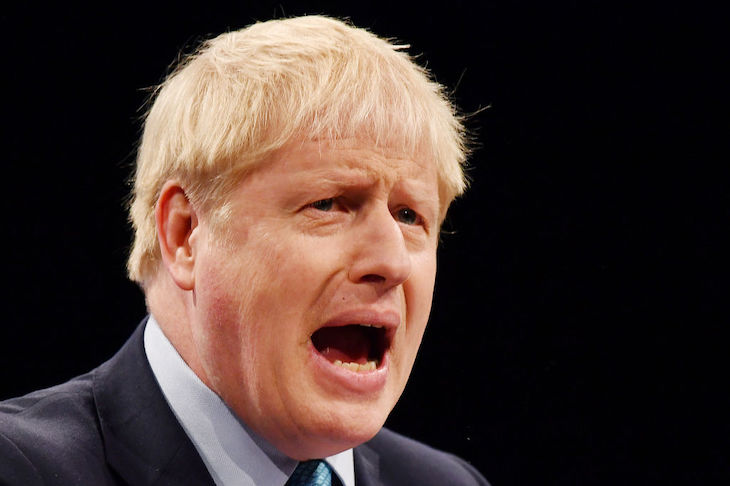Boris Johnson’s conference speech felt more like an after-dinner speech than a traditional leader’s speech at times. There were more jokes than policy announcements. The purpose of this speech, though, wasn’t to set out a series of detailed policy prescriptions but to try and get three messages across.
First, Boris Johnson wanted to persuade the public that he had made a reasonable offer to the EU and that if they wouldn’t engage with it, then no deal was the only way to get this done. He repeatedly stressed that he was compromising in the hope of getting a deal. He claimed that if the EU wouldn’t agree, they’d be going for no deal over ‘what is essentially a technical discussion of the exact nature of future customs checks’.
But Boris Johnson’s language about the EU was far more emollient than his language about parliament. He laid into it, saying that if it were a school, Ofsted would be shutting it down. He said it was parliament that was preventing the country from moving on from Brexit. He claimed that people had more say over what happened on ‘I’m a Celebrity’ than in the Commons. It was a speech designed to set him up as the leader trying to get Brexit done against a parliament determined to block it.
The second argument he wanted to make was that the Tories are a one nation party. He repeatedly emphasised his commitment to the health service, claiming that the Tories are the party of the NHS. He waxed lyrical about all the infrastructure projects he wanted to build to boost productivity outside of London; the infrastructure section even extended to space. He made his usual argument that only the Tories understand that you need a dynamic market economy to pay for public services.
The third point he wanted to get across was the risk that Jeremy Corbyn posed. The Tories want to make the next election a presidential contest, knowing that Boris Johnson has a double-digit lead over Corbyn on who would make the best PM. They also calculate that the risk of Corbyn is one of the best ways of keeping on board voters who are worried about no deal. Boris Johnson repeatedly emphasised how Corbyn would lead to a second independence referendum in Scotland, a message designed to try and help the Tories hold on to some of their 13 seats north of the border. He emphasised how Corbyn would ‘whack up your taxes’ and ‘foul up the economy’, which was an implicit way of saying to fiscal conservatives that Labour would be more economically disruptive than no deal.
In the speech, Boris Johnson repeatedly talked about getting Brexit done by October 31st. But that isn’t going to happen; the Benn Act has seen to that. The big question in British politics is who voters blame for this delay. If Leavers think it is the government’s fault, then there is no Tory route to victory. But if he can successfully shift the blame onto parliament and the courts, then he still has a chance of getting a majority.







Comments